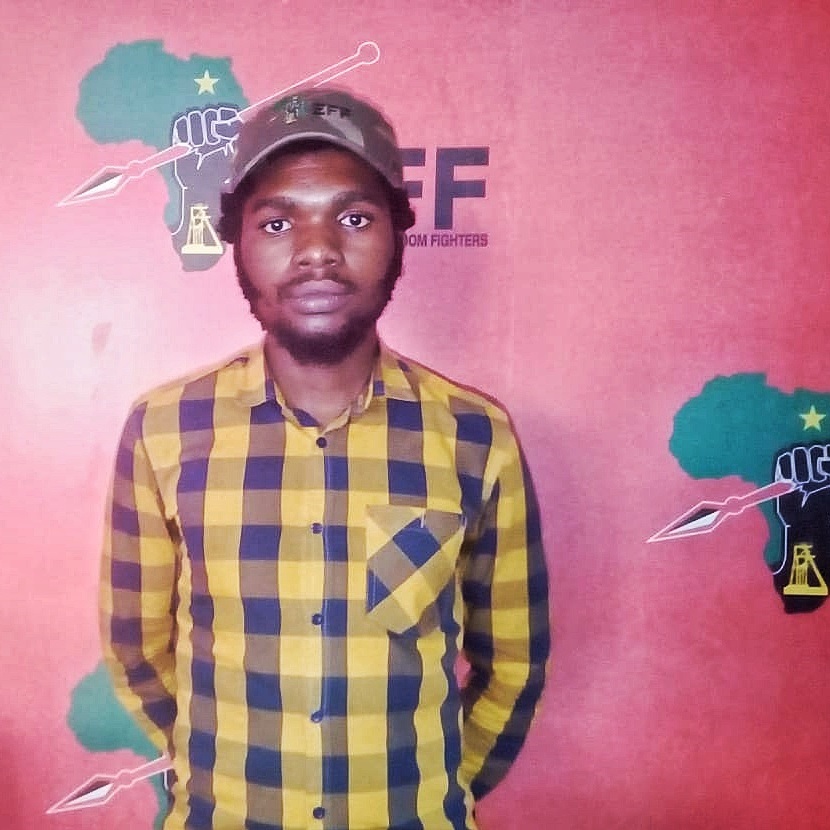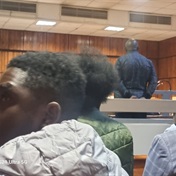
Former president Jacob Zuma’s announcement of free higher education was false and was simply presented as a way to gain political support from youngsters in South Africa.
These were the sentiments expressed by the Economic Freedom Fighters Student Command (EFFSC) president Peter Keetse (26) at a media briefing held at the party’s headquarters in Braamfontein on Monday.
“This whole free education notion has been nothing but a fallacy. There is no such thing as free education. Zuma must clarify this concept because we do not see it. Things remain the same with government administering subsidies and bursaries through the National Student Financial Aid Scheme [Nsfas] instead of a fixed, decolonised education for all,” he said.
In December 2017, on the day the governing party’s 54th elective conference was due to begin, Zuma announced that government would provide free higher education for first-year students from poor and working-class households with a combined income of R350 000 or less a year. In addition, Zuma said that Nsfas loans allocated to students would effectively be converted into 100% grants.
Read: Nsfas to disburse R32bn next year, eligible students to be notified in January
However, Keetse said that this was not a solution to an issue faced by students across the country.
“In 2015, when our student command was formed, our resolution was clear and concise: free education for all, not just for the poor. Free education for everyone – not just for some,” he said.
“In 2018, Nsfas failed to pay tuition, accommodation and book allowances on time, and it also rejected applications from the so-called missing middle.”
On the other hand, Ashley Mabasa (23), the secretary-general of the Progressive Youth Alliance-led Wits University student representative council, told City Press that students were benefiting from free education as proclaimed by Zuma.
“Free education is there – it is just not happening the way we want it to. To get free education, a student needs to apply to Nsfas and, when accepted, will get into university without paying for anything, including accommodation and meals. Like any other system, there are challenges to the model of free education, but it is there and there are people who have benefited from it,” Mabasa said.
Department of higher education spokesperson Lunga Ngqengelele told City Press that government had made billions of rands available to fund students.
“Poor and working-class students are supported through Nsfas. It is in the interest of the department for students to access this level of education, and government has done a lot to uplift students through the funding scheme,” he said.
Speaking about the student body’s #Sizofundangenkani campaign, Keetse said that the EFFSC aimed to address the issue of free decolonised education for all, and would also focus on other student issues, including free registration, that all institutions would allow walk-ins, and that sufficient and decent accommodation was provided for all.
Addressing the issue of free registration, Keetse, who has been at the helm of the EFFSC since 2017, said that the fee was also a form of exclusion.
“This is another way for institutions to say that those who are poor will suffer, even though they have met the requirements to register and attend these institutions. No student must be made to pay a ridiculous registration fee to be able to further their education.”
Keetse said the EFFSC had written a letter to the department of higher education and training, calling for the scrapping of registration fees altogether.
“We have given them until Wednesday [January 9] to respond and announce free registration for all. If it does not respond adequately, it will experience the maximum level of anarchy. We are not afraid to shut down universities or to take the fight to the streets. We have done it before and we can do it again,” he said.
Ngqengelele said: “We can only respond once we have received the letter. However, I must say that registration fees are not determined by the department, but by each institution at their discretion,” he said.
“The minister’s [Naledi Pandor’s] door is always open to any higher education stakeholder, including the EFFSC, to speak about any matter relating to higher education and training.”
The EFFSC is also calling for students who did not apply in time or were affected by the late opening of Nsfas be afforded a chance to walk in and register at any institution. Keetse said no student should be excluded based on a lack of space or finances.
“Some students get left behind because of the processes that go into applying. Not everyone has access to online applications, so those who were hindered from applying in time should be able to walk into any institution and register,” he said.
“Our first priority is access to education – not capacity. If a student passed matric and meets all the requirements, they must get access to higher education. Some prospective students travel long distances and camp outside institutions days before they open so they can get a chance to register, but then they are turned away – that is unacceptable.”
However, Mabasa said that his organisation did not agree with the EFFSC’s call for anyone who wanted to study to arrive at an institution and immediately be enrolled because this could threaten the safety of students who had followed the application process and had been accepted.
“The safety of students is important and, because of messages like those from the EFFSC, which are misleading, we might see students arriving in droves, possibly leading to stampedes.
“Yes, we should encourage institutions to make exceptions in certain cases. For example, students who do not have easy access to things like the internet and are deserving of being at higher institutions of learning should be accommodated,” he said.




 Publications
Publications
 Partners
Partners








